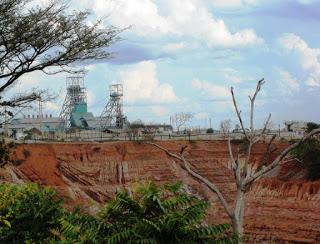When I was at school we had to study the book, One Day in the Life of Ivan Denisovich, Aleksander Solzhenitsyn, and the book Animal Farm, by George Orwell. I also watched the films 1984 and Animal Farm. Well, if that was communism, I thought, I'm not interested in any of that. Millions of school children were forced to read, One Day in the Life of Ivan, but Aleksander Solzhenitsyn's book, 200 Years Together, has never been in print in the West. Despite reading those books one thing I knew for sure, was that I didn't like the British ruling class, the gentry and the way they had treated the third world. I then I discovered socialism, a system that still embraced capitalism, but more fairly, but my interest, though, was never the trade unions, but in third world politics and how the
Topics:
Mike Norman considers the following as important:
This could be interesting, too:
Robert Vienneau writes Austrian Capital Theory And Triple-Switching In The Corn-Tractor Model
Mike Norman writes The Accursed Tariffs — NeilW
Mike Norman writes IRS has agreed to share migrants’ tax information with ICE
Mike Norman writes Trump’s “Liberation Day”: Another PR Gag, or Global Reorientation Turning Point? — Simplicius
When I was at school we had to study the book, One Day in the Life of Ivan Denisovich, Aleksander Solzhenitsyn, and the book Animal Farm, by George Orwell. I also watched the films 1984 and Animal Farm. Well, if that was communism, I thought, I'm not interested in any of that. Millions of school children were forced to read, One Day in the Life of Ivan, but Aleksander Solzhenitsyn's book, 200 Years Together, has never been in print in the West.
Despite reading those books one thing I knew for sure, was that I didn't like the British ruling class, the gentry and the way they had treated the third world. I then I discovered socialism, a system that still embraced capitalism, but more fairly, but my interest, though, was never the trade unions, but in third world politics and how the Western ruling elite ruthlessly exploited those countries. Poverty in the third world always bothered me.
Many African countries are very rich in minerals but the people remain poor. Western companies corrupt politicians with bribes and then loot the countries of billions. It doesn't seem right that rich people in the West, who's families wealth would have been made by the 400 year slave trade and by colonising countries in previous centuries, can now buy up the world, so that a country in Africa may be very wealthy in natural resources but it is all owned by foreigners.
The West can get to own everything of value in the world, which has has always claimed to be Christian, but that just goes to how how we can lie to ourselves. KV
Vijay Prashad

